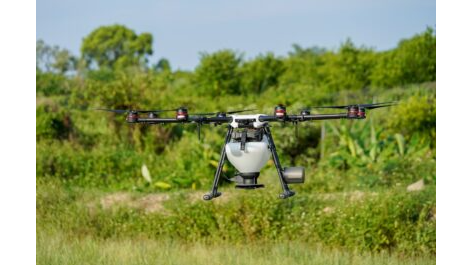Revolutionize your agricultural operations with advanced agricultural drones. Enhance your farm’s efficiency, sustainability, and productivity by leveraging precision technology. Discover the future of farming and learn more at www.agribizdrones.com

Revolutionizing Agriculture: Agricultural Drones Take Farming to New Heights
In today's dynamic agricultural landscape, technology continually reshapes traditional farming practices. One groundbreaking innovation gaining traction is the integration of agricultural drones. These unmanned aerial vehicles (UAVs) aren't just gadgets; they signify a profound shift in farming methods, offering farmers unprecedented efficiency, precision, and operational insights.
Enhancing Efficiency and Productivity
Agricultural drones have become indispensable tools, optimizing various farming operations. From crop monitoring to pesticide spraying, these drones streamline once labor-intensive tasks. Equipped with advanced sensors and imaging technology, they gather vast amounts of data with unparalleled accuracy, enhancing overall efficiency and productivity.
Precision Agriculture
The integration of agricultural drones has significantly enhanced precision agriculture, a farming management concept focusing on variability within and between fields. By meticulously mapping terrain, assessing soil health, and monitoring crop conditions in real-time, drones empower farmers to make data-driven decisions, maximizing yields while minimizing resource inputs like water, fertilizers, and pesticides.
Crop Monitoring and Management
Traditional crop monitoring methods are rapidly becoming obsolete with the advent of agricultural drones. Equipped with multispectral cameras and infrared sensors, drones capture high-resolution images, facilitating early detection of pests, nutrient deficiencies, and diseases. This proactive approach enables targeted interventions, averting potential yield losses and optimizing crop health.
Environmental Sustainability
In addition to boosting efficiency, agricultural drones play a pivotal role in promoting environmental sustainability. By enabling precise application of inputs like fertilizers and pesticides, drones minimize waste and mitigate the environmental impact associated with conventional farming practices.
Reduced Chemical Usage
Conventional pesticide application methods often lead to overuse and environmental contamination. Agricultural drones offer a precise and controlled alternative, ensuring chemicals are applied only where necessary. This targeted approach reduces pesticide quantities and minimizes the risk of runoff, safeguarding both the environment and public health.
Soil Conservation
Soil erosion and degradation pose significant challenges to sustainable agriculture. Through soil mapping and analysis, agricultural drones identify erosion-prone areas, allowing farmers to implement effective erosion control measures. By preserving soil health and structure, drones contribute to the long-term productivity of agricultural land.
Future Outlook and Adoption
As agricultural drones evolve and become more accessible, their adoption across the sector is poised to soar. From small-scale farmers to large agribusinesses, stakeholders recognize the transformative potential of drone technology in optimizing resource utilization, boosting crop yields, and mitigating environmental impact.
Technological Advancements
Advancements in drone technology, such as extended flight times and improved data analytics, are driving further innovation in agriculture. Integration with artificial intelligence and machine learning enables drones to autonomously analyze data, providing farmers with unprecedented levels of precision and efficiency.
Regulatory Considerations
While the benefits of agricultural drones are undeniable, widespread adoption hinges on addressing regulatory challenges. Collaborative efforts between governments, industry stakeholders, and regulatory bodies are crucial to establishing clear guidelines for drone operation, ensuring safe and responsible use in agricultural settings.
In conclusion, agricultural drones represent a game-changing innovation poised to revolutionize farming and land management. By enhancing efficiency, promoting sustainability, and driving technological innovation, drones are set to play a central role in shaping the future of agriculture.
For more information and to explore the future of farming with agricultural drones, visit www.agribizdrones.com.
